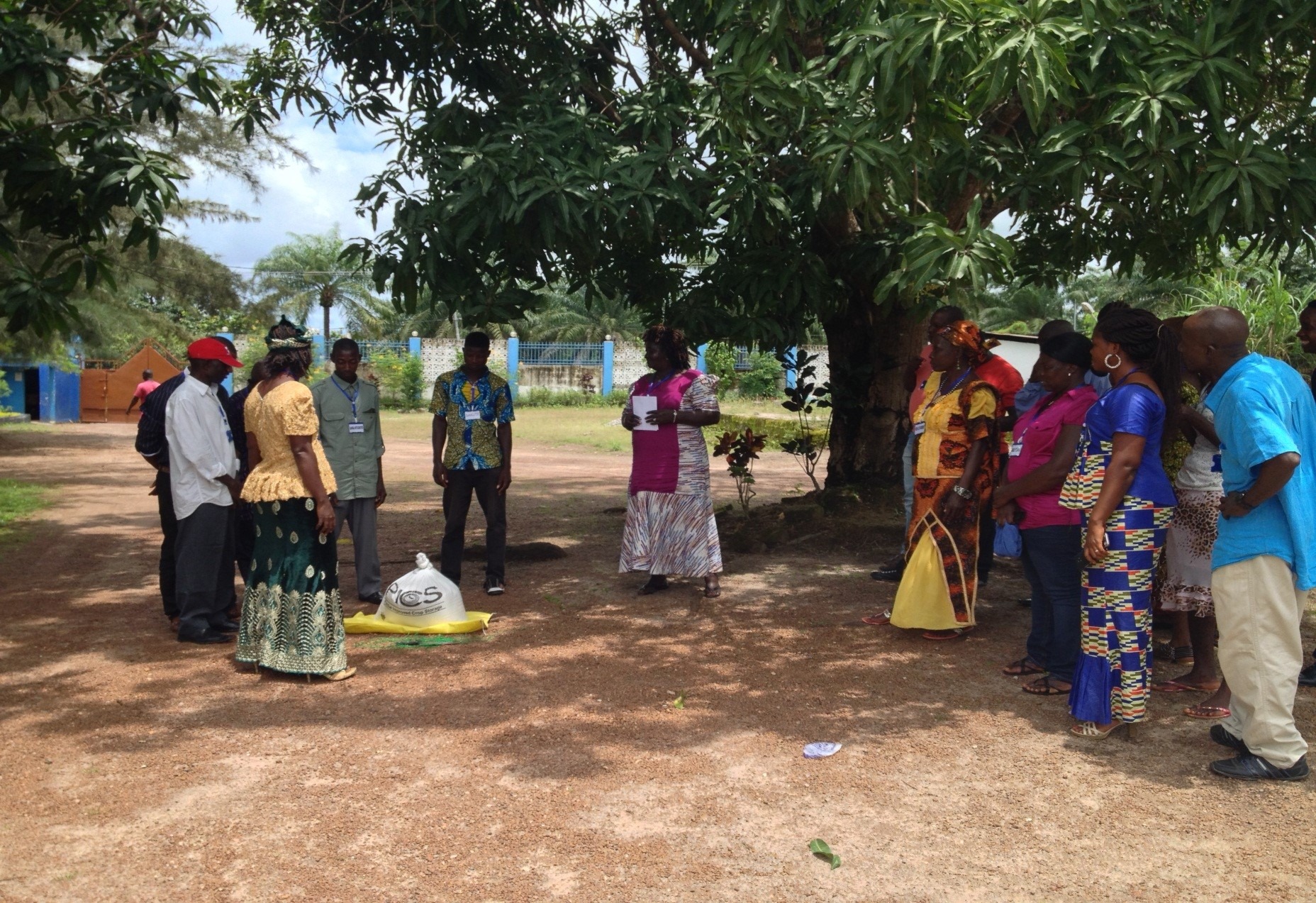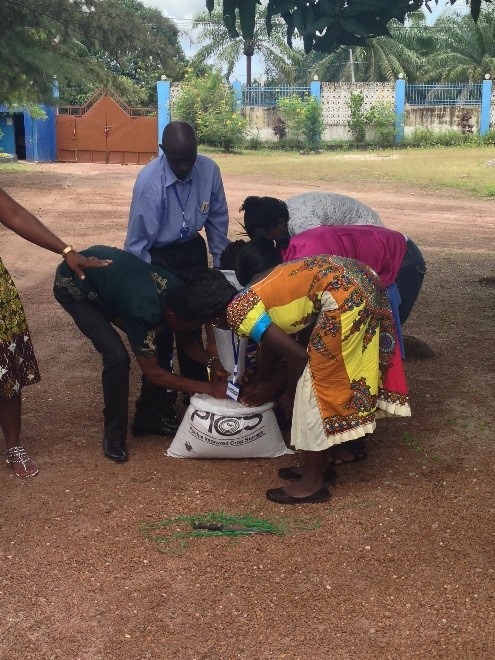
In Sierra Leone, seed and harvested cereal and legumes are often stored in jute bags on dirt floors, in poorly ventilated rooms, resulting in post-harvest losses and a reduction in subsequent seed germination rates. The Sustainable Nutrition and Agricultural Plus (SNAP+) Program, funded by USAID’s Office of Food For Peace and implemented by ACDI/VOCA, uses economic recovery grants to restore agricultural activity in markets affected by the Ebola Virus Disease (EVD). Input suppliers play an essential role in agricultural value chains making seed available to smallholders often under a seed loan scheme. This allows poor families access to seed which is later paid back through a percentage of the harvest or sales.
The outbreak of Ebola threatened to collapse this system on two fronts. First, due to the State of Emergency and restrictions on movement and public gatherings, farmers were unable to attend their farms resulting in loss of up to 30% of yields. As a result, smallholders were unable to repay seed loans. Secondly, prolonged, inappropriate storage of seed stock by input suppliers rendered a significant percentage of their seed stocks unusable. Improving storage of seed stock will ensure that future shocks do not threaten the input supply chain. ACDI/VOCA is addressing seed storage through provision of hermetic storage Purdue Improved Crop Storage (PICS) bags. PICS bags are locally available and affordable and can be easily adopted by smallholder farmers in Sierra Leone.
The SNAP+ program has distributed over 1,200 PICS bags to value chain actors that supply seed loans to smallholders.
ACDI/VOCA SNAP+ staff trained by the registered PICS supplier trained members of seven agricultural-based organizations (~ 200 members each) receiving value-chain recovery grants under SNAP+ to restore seed stocks lost during the EVD outbreak. With the grants, these agricultural-based organizations procured new seed to distribute to their members on a loan share scheme, maintaining small shareholder’s access to seed to restore household food security in the 2016 planting season.
After the training, each group received PICS bags that they then distributed to their members and used to store their seed stock.

“This is an amazing technology. I cannot wait to train our farmers on these bags.” – Allieu Koroma, Men and Women’s Develop Association
Applying what they learned in the SNAP training, input suppliers demonstrated how to use the PICS bags to their members. A key component of the training is a comparison test where a portion of seed is stored in a PICS bag and a portion stored in a jute bag. After three months, an opening ceremony will take place to allow farmers to visually inspect the quality of the grains stored in the PICS bags further aiding the effort to encourage farmers to adopt PICS technology.
Reducing post-harvest losses increases household food security for subsistence farmers by increase the amount of food available for consumption. Improving seed storage ensures that quality seed is available to smallholders resulting in higher yields and increased food security.
Learn more about ACDI/VOCA’s work in Sierra Leone here.
Learn more about SNAP here.
Learn more about SNAP+ here.








